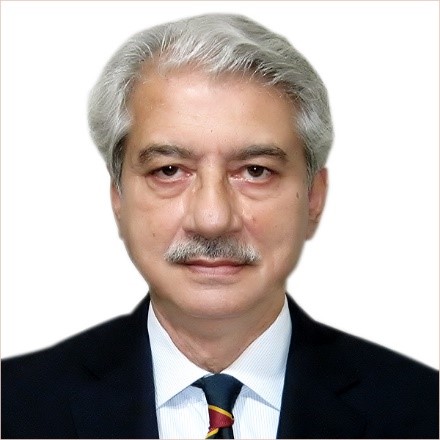Mirza Naqi Zafar, Pakistan has been granted the Emerging Economy Congress Scientific Award

Prof. Mirza Naqi Zafar, PhD.
Professor of Pathology and Head of Research and Publication. SIUT, Karachi.
I graduated from University of London in 1975 and completed PhD in 1979 from Royal Post Graduate Medical School, University of London. Currently I am supervising Chemical Pathology and Transplant Immunology Research as well as Routine Laboratory work. I have authored more than 250 publications. I am on the Editorial Board of Journal of Pakistan Medical Association. Currently I am secretary General of the Transplant Society of Pakistan, Secretary of Nephrology Urology and Transplant Society of SAARC countries, Councilor of Asia Region for The International Society of Organ Donation and Procurement. I was the organizer and Head of Scientific Committee of the SIUT Conference in 2017 where over 150 invited foreign speakers participated along with 3000 delegates from abroad and Pakistan.
Long-term consequences of kidney donation 15 – 30 years post-donation. An experience from a dedicated donor clinic in a low-income country
Mirza Naqi Zafar1, Adib H Rizvi1.
1Pathology, Sindh Institute of Urology and Transplantation , Karachi, Pakistan
Donor Follow-up Clinic.
Introduction: In low-income countries, living donors provide the majority of the kidneys for transplantation. Long-term follow-up of donors is important to maximize donor safety and prevent the adverse consequence of donation. In this study, we report long-term outcomes of kidney donors 15 years and beyond after donation.
Method: In an observational cohort study, 1093 kidney donors whose post-nephrectomy period exceeded 15 to >30 years were followed-up yearly in a dedicated clinic from 1985 - 2020. Each visit-included history, physical exam, blood tests for renal, lipid, glucose profiles and 24-hour urine for proteinuria and creatinine clearance. Preventive intervention was undertaken for new consent clinical conditions. All treatments including medication were given free of cost to all donors. The donors were divided into four groups, Group 1, nephrectomy duration (15-20 years), Group 2, (21-25 years), Group 3, (26-30 years) and Group 4, (>30 years). Descriptive statistics were used using SPSS version 22.0.
Results: In the period 1985 – 2020, 1093 donors had a post-nephrectomy period of ≥15 years. The mean age at donation was 34.3±9.8 years with a Male to Female ratio of 1.2:1. The mean post nephrectomy period was 21.7±4.2 years (range 15.1 – 35.1 years). The mean age at the last follow-up in Group-1 was (49.5±10.2 years), Group-2 (55.6±10.9 years), Group-3 (59.7±11.3 years) and Group-4 (62.0±9.2 years). Overall age range at last follow-up was (33-90 years). Overall Creatinine Clearance in ml/min/1.73m2 was 109.8±22.3 pre-donation, 83.96±18.85 at 1 year, 83.03±21.27 at 15 years, 77.5±22.79 at 25 years and 75.42±16.18 at 30 years. Mean Creatinine Clearance was 84.4±20 in Group-1, 80.2±21 in Group-2, 75.6±19.1 in Group-3 and 74±14 in Group-4. Protein Excretion mg/24-hour was <150 in 72%, 76%, 71% and 66% respectively in Group 1-4. Overall, of 1093 donors 4% had Protein Excretion of > 1000 mg/24-hour at post-donation period of 21.5±5.2 years. New-onset diabetes was found in 2.9% and hypertension in 5%. ESRD and mortality beyond 15 years was 0.87/10,000 person-years and 2.63/10,000 person-years respectively.
Conclusion: Donor nephrectomy has minimal adverse effects on the overall health status of donors 15-30 years post-donation. Regular follow-up identified the new-onset of disease and allowed intervention that may have prevented adverse outcomes. Donor clinic has given confidence to the community and enhanced living-related donations.
Institutional Funding.

right-click to download
